When he came to DePauw, Dave Hersh ’94 figured he’d pursue a business career. Upon graduation, he thought it wise to start out working for someone else, so he worked as a management consultant and for a dot-com.
But DePauw was “where my eyes were opened to entrepreneurship as a legitimate direction,” he says, and that knowledge enabled him to pivot confidently when he and his wife, who was about to start graduate school, arrived in New York City Sept. 10, 2001.
With job prospects bleak, Hersh revisited his entrepreneurial instincts and hooked up with some former colleagues to develop Jive Software, a platform that facilitates customers’ internal collaboration and employee engagement.
As Jive’s founding chief executive officer, Hersh oversaw the company for more than eight years and orchestrated its 2011 initial public stock offering, which raised $161.3 million. That tremendous success positioned him for a career in which “I buy companies that stalled and weren’t able to make it on the first go-around … and I nurse them back into companies that are healthy, sustainably growing, purposeful. And I do it as CEO for a while.” He holds that title at his most recent acquisition, Mobilize Networks.
I do it because I love doing it and I love helping people and just creating new things in the world and, hopefully, trying to make the world a little better each time.– Dave Hersh ’94
Entrepreneurial spirit can be cultivated, says Hersh, whose parents, James Hersh ’65 and Martha Anderson ’66, likewise are DePauw grads. “But there definitely has to be an interest. In other words, once people are exposed to it, they have to want to learn more and get excited about it and really enjoy the process. They have to have an engine under the hood and an excitement for building something and working closely with other people. If that’s the case, entrepreneurship can open up a whole new world for them.”
Early in one’s career, he says, the entrepreneurial drive is “really all about proving yourself worthy in the world – everything from having a job to finding a significant other, making money or fame or whatever it is. All those things are just drives to prove that you’re worthy, that you belong, right?
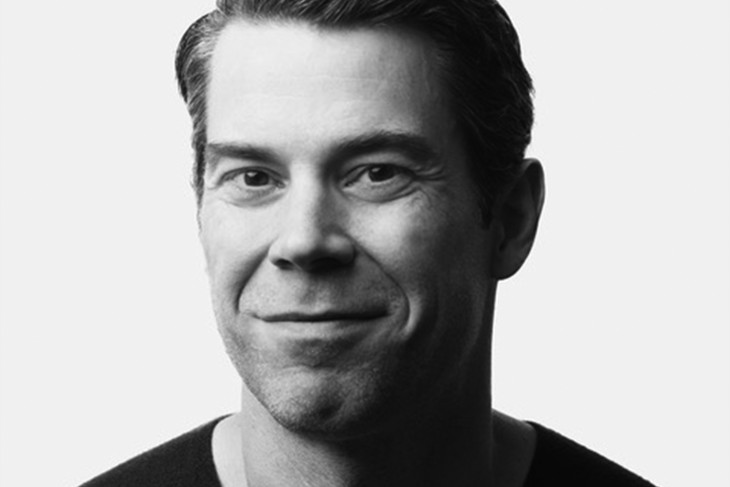
David Hersh
“Now I do it because I love doing it and I love helping people and just creating new things in the world and, hopefully, trying to make the world a little better each time.”
As an entrepreneur, he said, “I create; that’s a big part of it. The creative part of business-building. It’s not all widgets and building machines; there’s a big creative element to it, to create something that doesn’t exist. And I think that, to me, is the most exciting part. To do things that haven’t done before and do it in unique ways, to be really different in the world. To solve people’s problems and create.”
Hersh is writing a book to share his ideas on how to build “a lean, focused, purpose-driven company” and anticipates that, as he ages, he’ll stop working as CEO and shift to coaching others.
He also plans to establish a nonprofit organization; his favorite causes are autism and education. “I’ve been incredibly fortunate in my career, and am grateful for my success,” he says. “After the basics of a good life are covered financially, the money would just be spent on unnecessary things that aren’t improving the bigger picture. … So my philosophy is to understand where to draw that line in a way that reflects our values, and ensure the rest goes to charities that we believe make a difference in the world.”
•
Brian Thompson’s career offered two divergent pathways, and he took the one less traveled by: entrepreneurship. He had never anticipated this; when he came to DePauw as a cross country and track recruit, he had no idea of what his career might eventually be and “I didn’t even know what entrepreneurship was.”
Obviously it’s a risky venture. There are a lot of ups and downs– Brian Thompson ’01
His father, an executive at General Motors Co., pushed him toward business consultancy or engineering; Thompson, a philosophy and English writing double major who graduated in 2001, considered college-level teaching. His career adviser suggested the law and, after staying at DePauw for a fifth year as assistant director of the Writing Center, Thompson headed to Boston University for law school.
His first law job was with a Chicago bankruptcy practice, chosen because he and his partner, Benjamin Rogers ’01, missed friends and family in the Midwest. After a year, Thompson moved to another firm, where he ran the tax preparation business and earned certification as a financial planner. When the U.S. Supreme Court’s 2013 ruling in Windsor v. the United States affirmed the legality of same-sex marriages that had already occurred, nationwide marriage equality seemed to be on the horizon, so Thompson began writing a blog about financial issues surrounding it.
Then in 2015, his firm’s partners split. One asked Thompson to join his new firm with the promise that Thompson could buy into partner status in five to seven years. Thompson flinched; having worked at the firm for nine years, such a promise seemed anemic.
“At that point,” he says, “I was, like, all right, I’ve got to figure out what I want to do.” His research suggested a niche financial-advising practice focused on Generations X and millennials, who he believes are underserved because most financial advisers seek clients who already have sizeable bank accounts. Meanwhile, the high court – ruling in a case argued by Douglas Hallward-Driemeier ’89 – in June 2016 made marriage equality the law of the land.
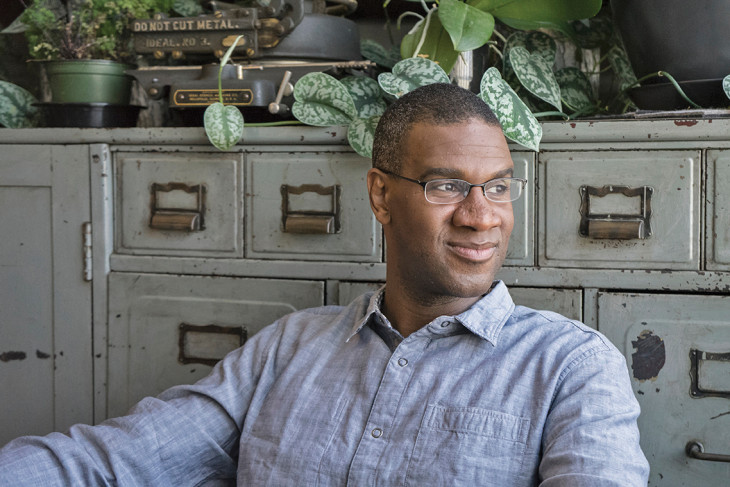
Brian Thompson
Thompson recalled the numerous considerations he and Rogers weighed before they were married under Illinois law in 2014, and he wanted “to be the change that I want to see.” So he chose to serve LGBTQ couples, many of whom were considering marriage after a lifetime of believing it would always be out of reach. LGBTQ couples often are more financially vulnerable than straight couples, he says, because they earn less and have less job security and they are more likely to consider themselves to be spenders.
As he builds Brian Thompson Financial, he recognizes that “you need to take things one day at a time. Obviously it’s a risky venture. There are a lot of ups and downs” but “the quality of life is much better than I ever imagined.”
DePauw prepared him for entrepreneurship, he says, by making him a better writer, “and that’s the way I have really sold my brand and my services;” in addition to the blog, he is a regular contributor to Forbes magazine. He also credits DePauw for his success in law school and for his ability “to think and analyze, not just hear something and read it but to really internalize it and process it. … The breadth of experience helped me figure out what I want to do and know that I can succeed in many things.”
•
Jon Weed ’91 had been mixing up batches of gourmet peanut butter to use at home or to give as gifts when it occurred to him and his wife Kathy that “it would be kind of a neat thing to do the Zionsville (Ind.) Farmers Market and a way to have the kids be in front of people and have to do sales and just learn about having a small business,” he says. “So I signed us up to do that.”
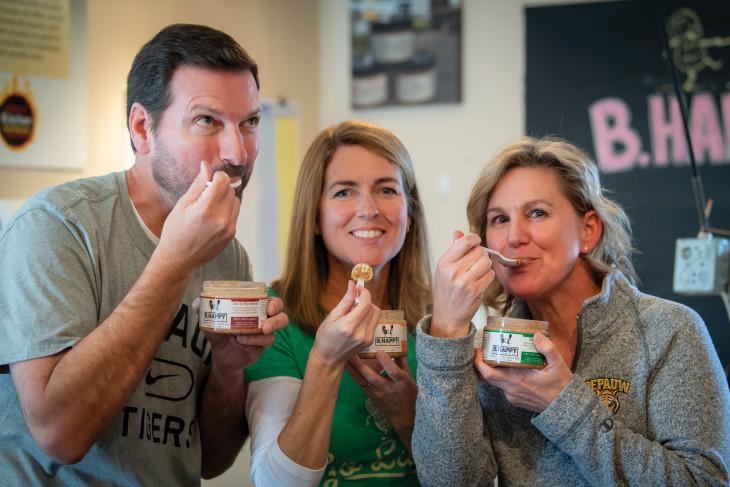
Jon Weed with his wife Kathy (center) and Nicki Dapp Griffin ’92.
It was 2013, and B. Happy Peanut Butter was born.
A friend gave the family after-hours access to her commercial kitchen, where Jon, a financial adviser who moonlighted into the wee hours, concocted the confections: peanut butter made with honey-roasted nuts and infused with goodies such as chocolate, pretzels, cranberries and coconut. Kathy – who says the recipes are Jon’s “creative outlet” – and the kids, then 14, 12 and 7, jarred, labeled, boxed and prepared orders for delivery and mail.
“All of a sudden, stores found us and … and what started out as a little summer project grew into this real business,” Jon says. “And then we had some good publicity from TV a few times and articles in the newspaper and magazines. When those hit, more stores would call us and ask to carry our product.”
Says Kathy: “When we first started this little project, we were super excited if we sold 100 jars at the farmers market each week. That was a big week. And now we’ll make 2- to 3,000 jars a week” and triple that during the holidays. Now made at the Weeds’ own commercial kitchen, the nine varieties, whose names – including Count Your Blessings and Dream Big – reflect Jon’s optimism, are available in many Target, Fresh Thyme and Market District stores and on the Uncommon Goods and B. Happy websites. And at Zionsville’s farmers market.
Besides Kathy, who works nearly full-time for B. Happy, the company has four employees, including Nicki Dapp Griffin ’92, whom Jon has known since he was a waiter in her Delta Gamma sorority house.
Despite the brand’s success, Jon has no plans to quit his full-time job. But he allows himself to dream of selling the company some day and using the proceeds to ease his and Kathy’s retirement.
You’d better be passionate about whatever you do, if you’re going to do your own thing, because it’s a lot of hard work and if you’re not overly passionate about it, it’s too easy to give up.– Jon Weed ’91
Weed says he has been entrepreneurial since childhood, when he helped his mother create lacquered brooches that she sold. When he graduated from DePauw during a tanked economy, he and his friend Rob Harrell ’91 started a catalog company to sell t-shirts nationwide. (Harrell, now a graphic novelist with a movie deal with Paramount Pictures Corp., later designed the B. Happy logo.)
DePauw, he says, did “a really good job of encouraging” his entrepreneurial drive and of informing students “that there’s more than just (being) an accountant or a lawyer. You can be a lot of different things.”
In the early years of B. Happy, “when I was here working at 2 o’clock in the morning, I didn’t mind it,” Weed says. “It wasn’t drudgery to come in here; it was exciting to be able to make something and get that feedback from people how much they like it. It’s really rewarding.
“I always tell people, you’d better be passionate about whatever you do, if you’re going to do your own thing, because it’s a lot of hard work and if you’re not overly passionate about it, it’s too easy to give up.”
DePauw Magazine
Summer 2019
 Rising Above in Business and Tech
Rising Above in Business and Tech The Bo(u)lder Question By Erin Rees Clayton ’01
The Bo(u)lder Question By Erin Rees Clayton ’01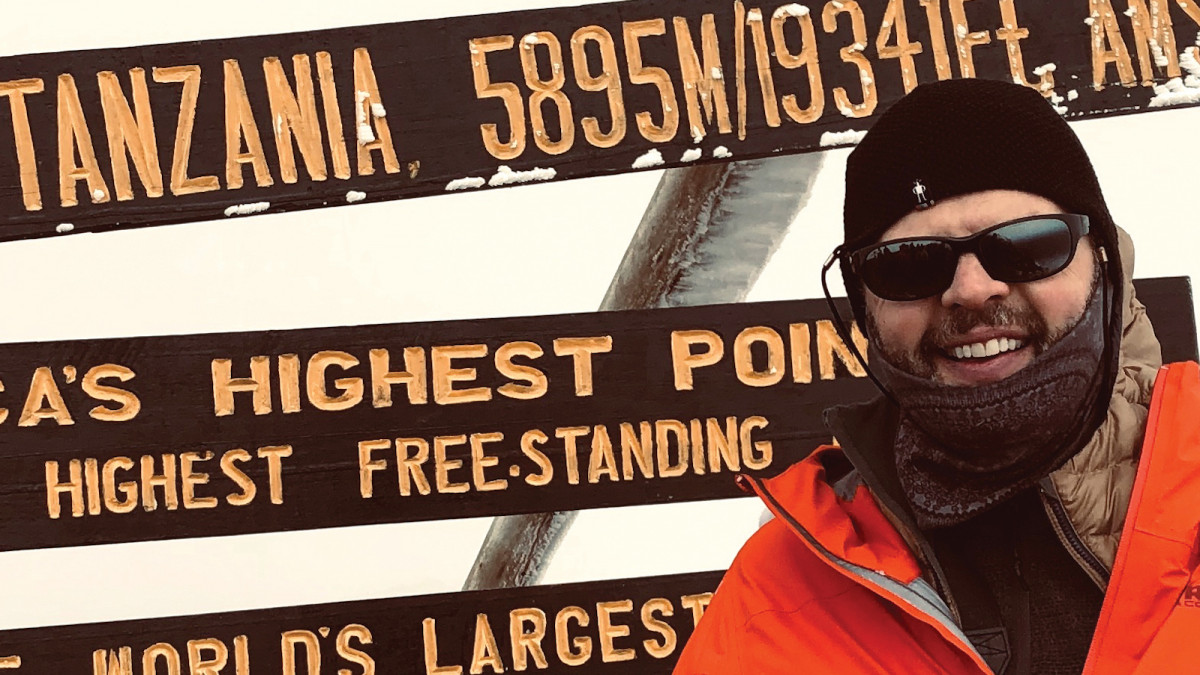 FIRST PERSON with Tim Holt ’88
FIRST PERSON with Tim Holt ’88 Alum Finds Clarity in 8,000-Mile, 154-Year Journey
Alum Finds Clarity in 8,000-Mile, 154-Year Journey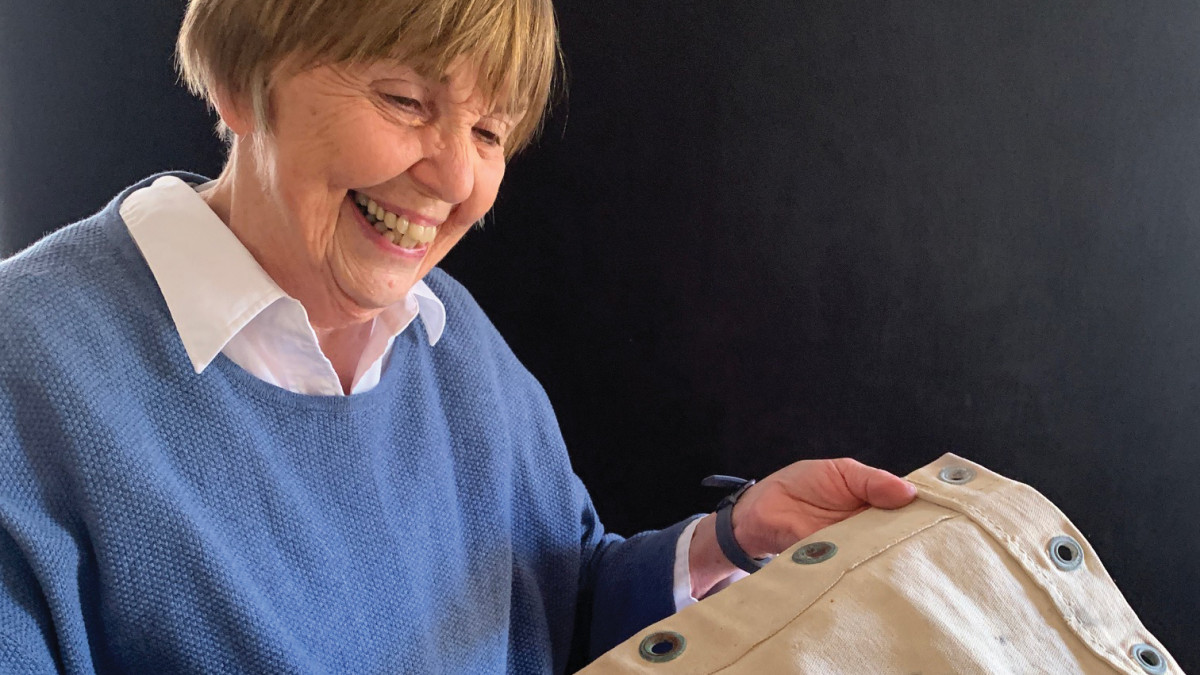 From the Poignant to the Profane: Alum Preserves Soldiers’ Personal Stories
From the Poignant to the Profane: Alum Preserves Soldiers’ Personal Stories Entrepreneurship: Three Takes on It, Three Tracks to It
Entrepreneurship: Three Takes on It, Three Tracks to It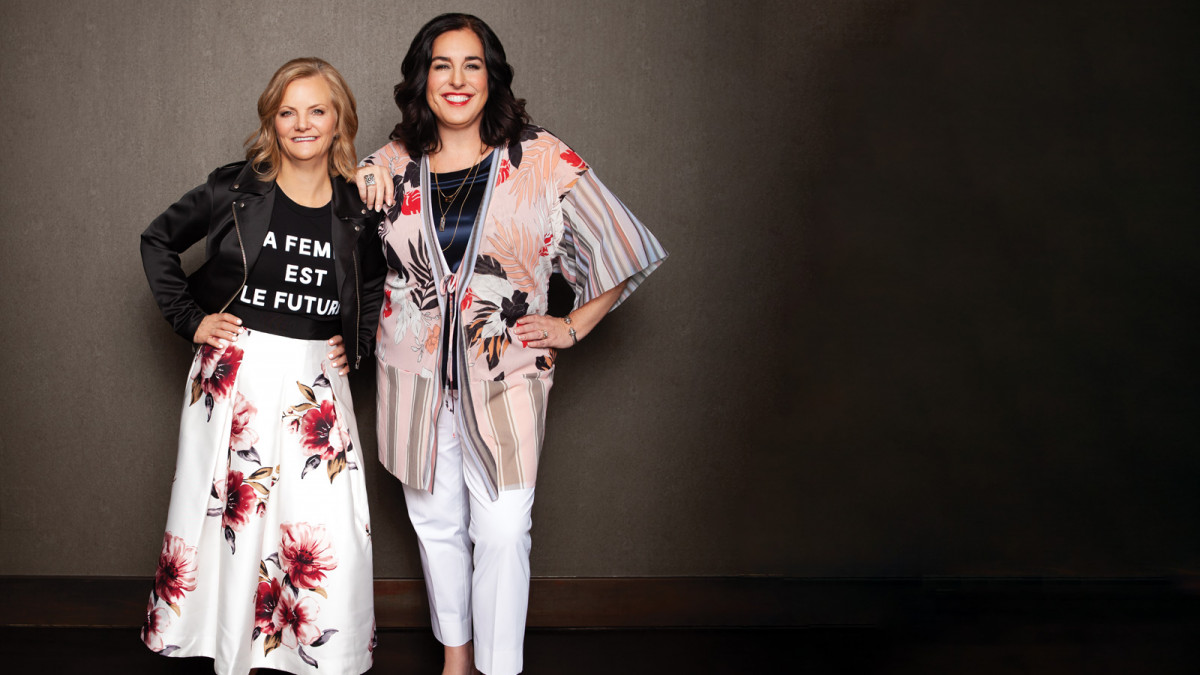 PARALLEL PATHS: Best Friends Transform Career Crises into Triumphs
PARALLEL PATHS: Best Friends Transform Career Crises into Triumphs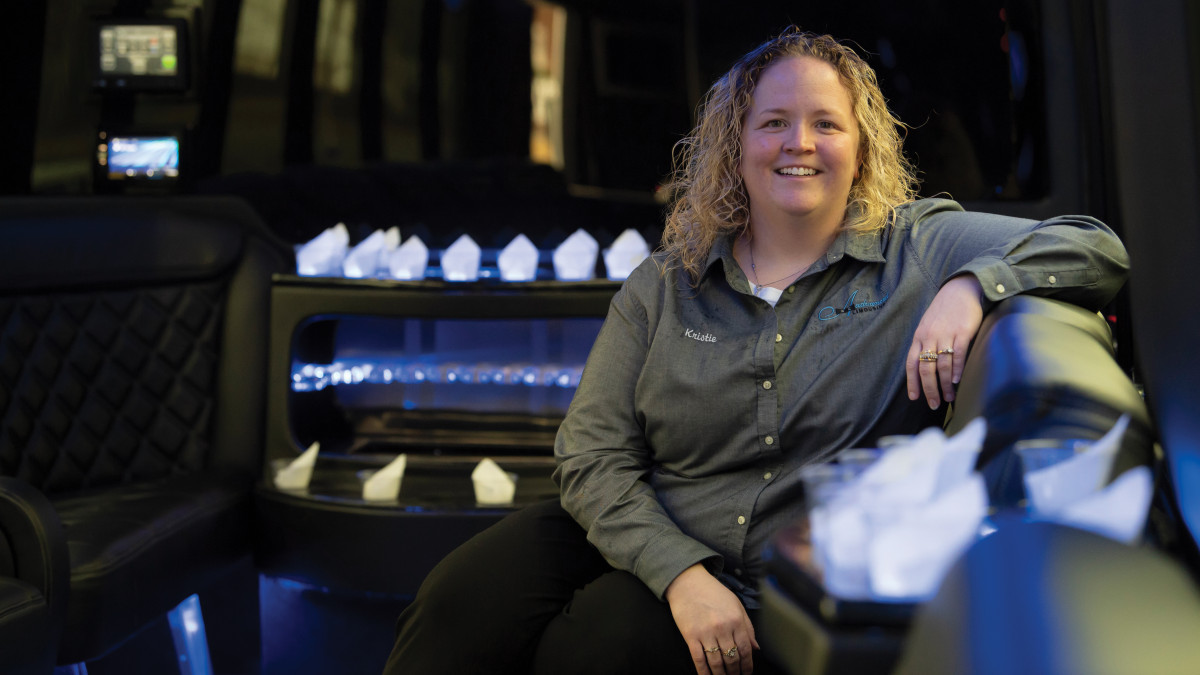 The Sweet Taste of Success
The Sweet Taste of Success
DePauw Stories
A GATHERING PLACE FOR STORYTELLING ABOUT DEPAUW UNIVERSITY
Browse other stories
-
Athletics
-
Men's Basketball - DePauw's Six-Game Win Streak Snapped by Blue Streaks
-
Women's Basketball - DePauw Falls to #11 Blue Streaks
-
Men's Basketball - Tigers Extend Win Streak to Six with Overtime Win at Augustana
More Athletics
-
-
News
-
Student and Professor Share Unexpected Writing Journey
-
Four in a Row! DePauw Wins 131st Monon Bell Classic
-
Jim Rechtin '93 Featured in Fortune Magazine
More News
-
-
People & Profiles
-
Entrepreneurs Eric Fruth ’02 and Matt DeLeon ’02 Are Running More Than a Business
-
Rick Provine Leaves Legacy of Leadership and Creativity
-
History Graduate Cecilia Slane Featured in AHA's Perspectives on History
More People & Profiles
-
-
Have a story idea?
Whether we are writing about the intellectual challenge of our classrooms, a campus life that builds leadership, incredible faculty achievements or the seemingly endless stories of alumni success, we think DePauw has some fun stories to tell.
-
Communications & Marketing
101 E. Seminary St.
Greencastle, IN, 46135-0037
communicate@depauw.eduNews and Media
-
News media: For help with a story, contact:
Bob Weaver, Senior Director of Communications.
bobweaver@depauw.edu.